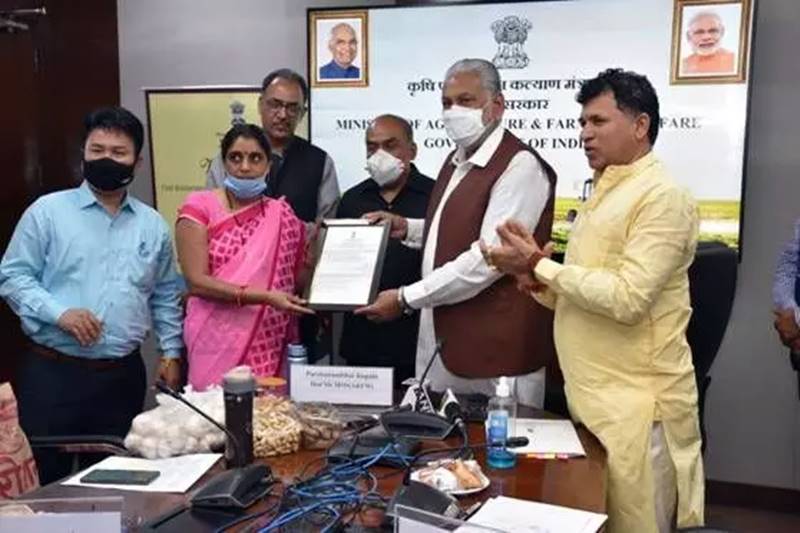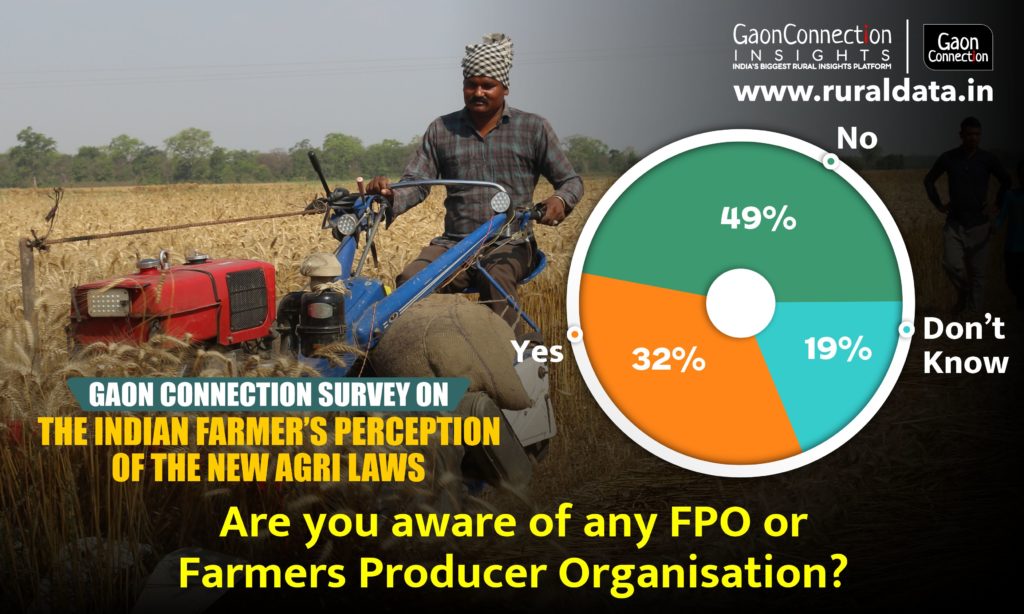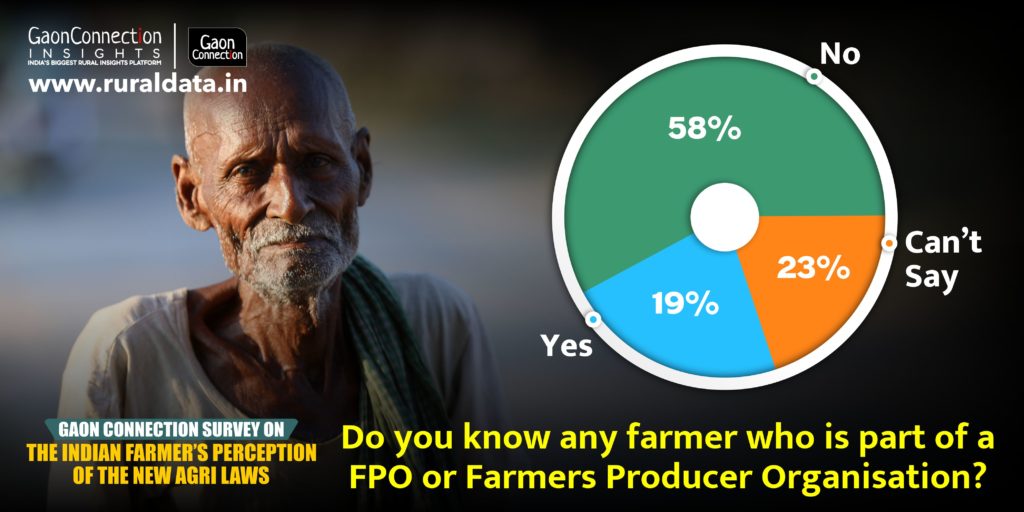Producing Results: According to the Central government, the year-old FPO scheme is showing great promise
A year after the Central government’s Farmers Producer Organisation (FPO) scheme was launched, 2,200 FPOs came into being and the Agriculture Ministry is pleased with their progress report. The government has said it will set up more than 2,500 FPOs in 2021 with an expenditure of up to Rs 700 crore to help 60,000 farmers.


The Central government guidelines on FPO stipulate that each FPO will consist of 50 per cent small, marginal and landless farmers. (Photo: Union Ministry for Agriculture and Farmers Welfare)
A year after the Central government launched the Farmers Producer Organisation (FPO) scheme, the Union Ministry of Agriculture and Farmers Welfare provided the details of the scheme and how it had proved to be very useful for farmers, especially the ones with small land holdings.
“These FPOs will commercially propagate farming and agriculture as well as have significant social impact on the country,” Purshottam Rupala, Union Minister of State for Agriculture and Farmers Welfare told reporters. “Small farmers are coming together as groups. This organisational power will bring about a major shift in the agriculture sector,” he claimed. The FPO scheme has not only promoted farming and agriculture but is also empowering the farming households socially and economically, he said.
“Linking small, marginal and landless farmers with the FPOs will help in enhancing their economic potential and market linkages to increase their incomes,” said Kailash Chaudhary, Union Minister of State for Agriculture and Farmers Welfare.
Empowering farmers
Prime Minister Narendra Modi launched the FPO scheme on February 29, last year at Chitrakoot district in Bundelkhand region of Uttar Pradesh, with a budgetary provision of Rs. 6,865 crore. The scheme was aimed at increasing the income of small farmers besides aiding agricultural development. Under the scheme, 10,000 new Farmer Producer Organisations (FPOs) were to be set up across the country by 2023-24. More than 2200 FPOs were registered in 2020-21.
FPO is a system which enables purchasing crops of fruits, vegetables, flowers, fish and horticulture from the farmers and selling it directly to companies. It has the farmers as the participating members. The Centre claims that these farmers enjoy better income through the FPO as they can negotiate.
Each FPO is made up of a group of mostly small and marginal farmers. According to the government, through the FPO, the farmers not only get market linkage for their produce but also find it easier to buy manure, seeds, medicines and agricultural equipment at fair prices. FPOs also release them from the clutches of middlemen.

The fact that a group of farmers negotiate the prices through the FPO, means they can bargain for a better price for their produce, unlike a lone farmer who may not have the bargaining power and who may be exploited by the middlemen.
FPOs have been formed across Kashmir, Rajasthan, Maharashtra, Madhya Pradesh, Odisha, Bihar, West Bengal, Uttar Pradesh, Tamil Nadu and Arunachal Pradesh. Registration of new FPOs is going on in other states. These FPOs are based on traditional crops as well as apples, almonds, honey, tea, groundnut, cotton, soyabean, linseed, sugarcane, vegetables, etc.
However, a recent report from the Azim Premji University, Bengaluru states that so far, more than 50 per cent of the FPOs in the country are located in only five states (Maharashtra, UP, Tamil Nadu, Madhya Pradesh and Telangana). That means, they have limited access in most other parts of the country.
The rapid survey of the Gaon Connection Insights conducted on agricultural laws also revealed that 49 per cent of farmers did not know about FPO. The survey results showed that 55.4 per cent of farmers, who were not even aware of any farmer being a member of such groups, were small and marginal farmers. The figure was even higher among the medium and large farmers at 64.8 per cent.
Finance and the FPO
The Central government guidelines on FPO stipulate that each FPO will consist of 50 per cent small, marginal and landless farmers. In addition, a grant of Rs. 15 lakh will also be given to each FPO depending on the quantum of its work. Cooperative societies across the country will help setting up of FPOs to increase investment in agriculture in rural areas.

Under the scheme, the Centre makes provision for providing technical and financial assistance to farmers and FPOs. Commercial handholding through cluster-based business organisations is provided by the government for a period of five years. For the first three years, FPO employees are provided with a sum of Rs. 18 lakh towards their salaries, registration, building rent, utility charges, equipment cost, travel and other expenses.
The farmer members of the FPO are given Rs. 2,000 (maximum of Rs. 15 lakh per FPO) as equity grant. FPO gets credit guarantee up to 75 per cent for bank-worthy projects of Rs 2 crore, while credit guarantee-cover up to 85 per cent is provided for bank-worthy projects of Rs 1 crore. A budget of Rs. 6,865 crore has been provided for the scheme.
According to Chaudhary, the Centre will set up more than 2,500 FPOs this year with an expenditure of up to Rs 700 crore to help 60,000 farmers. He said the scheme would empower the small and marginal farmers’ groups.
ALSO READ: For the first time in Uttar Pradesh, an FPO sets up its own solar-powered cold storage and a silo
Facilitating the agri-laws
FPOs can also play a key role towards successfully implementing the new agricultural laws, said Kailash Chaudhary. He said that whether the farmer is selling the produce directly to the traders or the companies or cultivating through contract farming, the FPOs will be of great help. According to him, the Prime Minister has taken steps to make the agriculture sector in the country self-reliant under the Agriculture Infrastructure Fund for farmers. The Agri Infra Fund of Rs. 1 lakh crore will be used to develop villages and infrastructure related to the agriculture sector. The fund will also provide loan facilities for installation of cold stores, warehouses, silos, grading and packaging units.
Under this fund, financial facilities will be provided for 10 years, while farming-related projects will also be worked out. The purpose of releasing this fund is to promote private investment and jobs in the villages.

